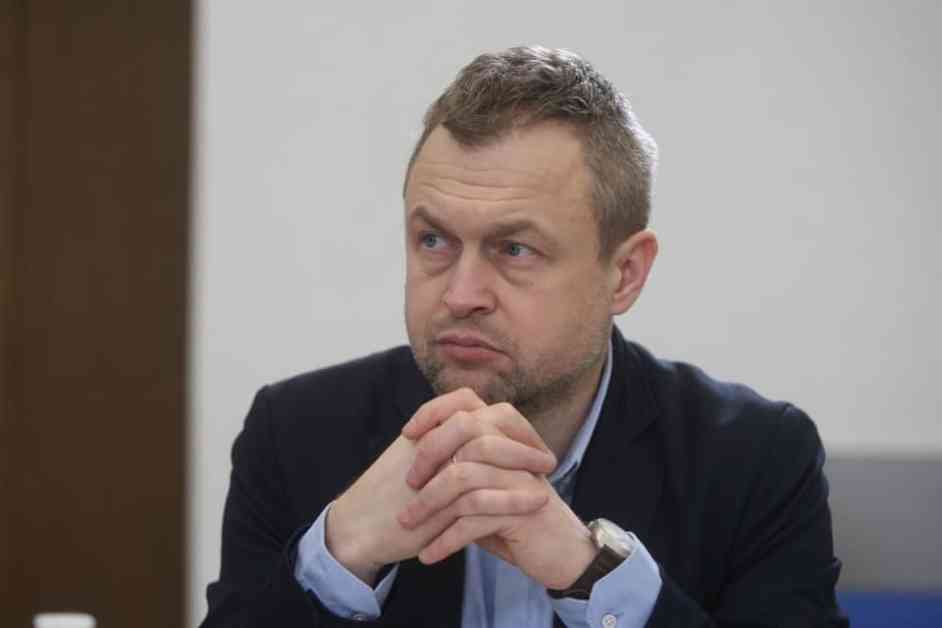The recent developments in Ukraine’s defense landscape have brought about a significant shift that has left many unsettled. At a recent Ukraine Defense Contact Group meeting in Brussels, the United Kingdom took the lead, while the US, under the new Defense Secretary Pete Hegseth, assumed a more passive stance. Hegseth’s alignment with President Trump’s desire to end the war was underscored by two critical points: Ukraine’s exclusion from NATO and the unlikelihood of reclaiming its 1991 borders.
As the impending Munich Security Conference looms, placing the war in Ukraine at the focal point of discussions, the parallels with the 1938 Munich Conference, where European powers made concessions to Hitler, are hard to ignore. Vice President JD Vance is gearing up to present a peace proposal that was crafted without the input of Ukrainian President Zelenskyy, raising concerns about Russia’s potential further territorial ambitions.
These recent policy shifts in the Western world reflect a disheartening pattern of broken promises to Ukraine, reminiscent of the 1994 Budapest Memorandum. This agreement saw Ukraine surrender its nuclear weapons in exchange for security assurances, only to find those guarantees lacking in the face of Russian aggression.
Amidst this atmosphere of betrayal, individuals like Mykhailo Samus, a Ukrainian defense expert and Director at the New Geopolitics Research Network, offer a glimmer of hope. Samus believes that despite the challenges, Ukraine has the potential to emerge from this crisis stronger than ever. He emphasizes the importance of seizing this historic moment, highlighting the resilience and strength Ukraine has demonstrated in the face of adversity.
Expert Insight: Ukraine’s Path to Victory
Samus’s perspective sheds light on Ukraine’s remarkable transformation since 2014. He recalls a time when a single Russian battalion in occupied Donbas could easily overpower Ukraine’s entire army, underscoring the psychological unpreparedness for conflict with Russia. However, the expert points out that the tide has turned, with Ukraine now demonstrating its ability to stand firm and fight back.
Despite the limitations of Western military aid, particularly in terms of air support, Samus remains optimistic. He draws parallels to the Soviet Union’s eventual withdrawal from Eastern Europe and the Baltics, envisioning a strategic strengthening for Ukraine in the long run. The analyst emphasizes the need for EU membership, American investment, and continued international backing as key opportunities on the horizon.
European Defense Strategy: A New Vision
Samus’s vision extends to a comprehensive European defense system that would replace NATO, marking a significant departure from the alliance’s traditional stance on Ukraine. He advocates for a task-based approach to defense spending, focusing on the specific security components required to fortify Europe against potential threats.
The analyst highlights the critical role Ukraine could play in this new defense paradigm, particularly given its expertise in missile and drone production. By emphasizing the need for a unified European security system, Samus underscores the shared interests and responsibilities that Europe and Ukraine must embrace in the face of evolving security challenges.
Economic Leverage: The Path to Peace
As discussions around peace negotiations intensify, Samus delves into the economic leverage that could be wielded to press for a freeze on the war. He proposes a bold approach of cutting off Russia’s oil shipments entirely and driving oil prices down to devalue Russian oil. With Europe’s decreasing reliance on Russian gas and the potential for American supplies to fill the gap, Samus sees an opportunity for economic pressure to influence Putin’s stance on the conflict.
The expert underscores the contradictions in leaders like Hungary’s Viktor Orbán and Slovakia’s Robert Fico, who continue to support Russian gas flows into Europe despite Trump’s economic agenda. By aligning Ukraine’s energy capabilities with Trump’s vision for the region, Samus emphasizes the strategic importance of Ukraine’s gas storage capacity in supporting broader energy initiatives across Europe.
In conclusion, the road to peace in Ukraine is fraught with challenges and complexities. Yet, individuals like Mykhailo Samus offer a beacon of hope, pointing towards a future where Ukraine emerges stronger, Europe stands united in defense, and economic leverage plays a pivotal role in shaping the path to peace.

















